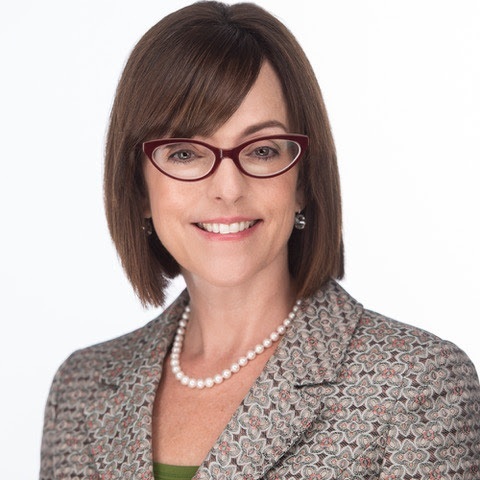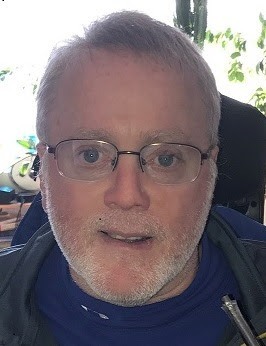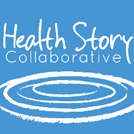June 2018 Newsletter

Publication Date: June 1, 2018
Recent Media Coverage

Last month's summit generated excellent media exposure focused on the Coalition's work. Here are a few examples:
- Interview with Atul Gawande about the Coalition's most recent research
- "'Death is not a failure': Medical Schools adapt end-of-life lessons"
- Rev. Gloria White-Hammond talks about how faith leaders can support their congregants coping with serious illness.
- Segment with Dr. Brian Silver from UMass Memorial about the importance of preparing physicians to have compassionate conversations with patients.
Giving a Voice to the Disabled Community in Advance Care Planning


Five years ago, Dennis Heaphy and Dr. Suzanne Mitchell started a conversation and a collaboration aimed at helping underserved communities have a more pronounced voice in their own health care, especially when it comes to advance care planning. Heaphy is a health care advocate at the Disability Policy Consortium and co-chair of Disability Advocates Advancing our Healthcare Rights (DAAHR). Dr. Mitchell is an Assistant Professor of Family Medicine at Boston University School of Medicine and the director of ambulatory palliative care at Boston Medical Center. Heaphy is a Coalition member and Dr. Mitchell is one of the physicians from the four Massachusetts medical schools collaborating the Coalition to strengthen the curricula around serious illness care and create a national model.
“Individuals with disabilities find approaches to talking about advance care planning don’t reflect their experience at all,” says Dr. Mitchell. She cites questions used to get patients to talk about their care wishes, such as whether someone would want to live on a respirator or in a wheelchair, as potentially off-putting to people living in that situation who consider themselves as having a good quality of life.
Heaphy, who has been quadriplegic since he was 23 years old, agrees. “People with disabilities are treated as a diagnosis or poor health outcome, not a whole person. Only someone living with a disability can imagine it,” he says. “The system doesn’t reflect people’s ability to adapt to different situations. If someone had asked me before I became disabled, if I would ever want to live paralyzed from the shoulders down I would have said no, but it’s been 30 years now and every day I say yes.”
Dr. Mitchell co-authored a 2017 study in the Journal of Palliative Medicine that interviewed 25 people living with serious physical disabilities. The majority of the participants expressed some level of fear of differential treatment by medical providers between disabled and nondisabled individuals, and some feared this would translate into care being withheld at the end of life. The study recommended better training for health care professionals about the specific needs and concerns of patients with disabilities when discussing advance care planning and having advance care planning conversations that are longer and happen more often. The study advocated for people with disabilities to have early advance care planning conversations with peers from the disabled community who understand their needs and can offer trusted advice.
Both Heaphy’s and Dr. Mitchell’s work to increase health care access for the socially vulnerable also extends to people who are low income, struggling with mental health issues, people living with addiction, incarcerated people, the homeless, and people who speak English as a second language. “The playing field needs to be level, otherwise there will be disparities of folks not getting the services they need,” says Heaphy. They would like the socially vulnerable to receive both better health care service and social services such as transportation, having a personal care attendant and language services.
The two are bringing together thought leaders from different disciplines to come up with meaningful solutions. On November 29, they are hosting The Trio Project: Transforming Risk into Opportunity – Redesigning Palliative Care for the Underserved. It’s a working summit at Boston University to explore ways to adapt and implement best practices to fit the life experiences of people who have a social vulnerability that affects their ability to access care. The public is invited to attend the 9 a.m. keynote address, which will be delivered by Linda Briggs, co-founder of the Respecting Choices program, and Dr. John Loughnane from Commonwealth Care Alliance.
To learn more about the event, please contact Dr. Mitchell at [email protected].
If you have a story to share about your organization, please let us know! Contact Richard Averbuch.
Health Story Collaborative to Hold September Event

On September 29, 2018, Health Story Collaborative will hold a one-day event in Boston: The Power of Story: A Day of Sharing Among Patients, Caregivers, and Providers. It will focus on the therapeutic value of storytelling, and will include presentations and interactive workshops. Featured will be Elizabeth Jameson, an artist living with multiple sclerosis who has used her artwork to reclaim her agency in the face of this diagnosis – as well as Dr. Annie Brewster, Health Story Collaborative’s Founder, and Dr. Jonathan Adler, Health Story Collaborative’s Chief Academic Officer.
Attendees will be able to participate in one of five workshops using different art forms to engage with their own stories. A unique feature of the event is the diversity of perspectives involving patients, families, friends, and physicians (who will earn continuing medical education credits). The program will be relevant to those who are patients or have been close to someone with a serious illness – as well as those who treat the seriously ill in their clinical practice. Register here.
